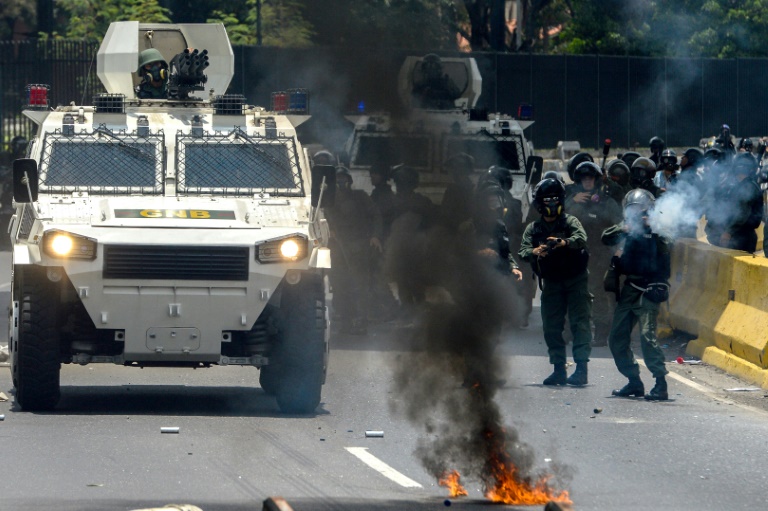The state prosecutor has rejected embattled Venezuelan President Nicolas Maduro’s plan to establish a congress as the country spiraled further into chaos when a mob set a man on fire.
Chief State Prosecutor Luisa Ortega stunned the crisis-hit country in March when she lambasted the Supreme Court for annulling the powers of the opposition-led National Assembly.
Since then, she has been a wild card within the publicly homogenous Venezuelan government, whose foes accuse it of seeking to dodge elections by creating a parallel assembly with powers to rewrite the constitution.
Socialist Party official Elias Jaua, in charge of the “constituent assembly” project, confirmed on Monday that Ortega had written him to express her discontent in a letter that was previously leaked on social media.
“It is my imperative to explain the reasons for which I have decided not to participate in this activity,” Ortega’s two-page missive reads.
“Instead of bringing stability or generating a climate of peace, I think this will accelerate the crisis,” she said, mentioning it would heighten uncertainty and alter the “unbeatable” constitution launched under late leader Hugo Chavez.
Jaua acknowledged receipt of Ortega’s letter, but quickly said she was merely expressing a “political opinion,” without any power to change the situation.
“We consider that the only organ the Bolivarian Republic of Venezuela’s constitution empowers to interpret the constitution is the Supreme Court’s constitutional chamber,” he said at a news conference, in reference to the pro-government top court.
Venezuelans are scrutinizing Maduro’s government and the armed forces for any cracks as protesters take to the streets daily to demand early elections, humanitarian aid to alleviate food and medicine shortages, and freedom for jailed activists.
While anti-government protests have brought hundreds of thousands to the streets, Venezuelans are increasingly concerned about spates of nighttime looting and barricades popping up in many neighborhoods.
Masked youths man roadblocks, turning back traffic or asking motorists for a monetary “collaboration” to be allowed through.
The worst nighttime unrest has largely been concentrated outside the capital, however, with the jungle and savannah state of Bolivar hard-hit overnight.
Some 51 buses were burned after a group attacked a transport company in the city of Puerto Ordaz, the prosecutor’s office said on Monday. Barricades and clashes with the National Guard were also rippling through the city on Monday, according to a Reuters witness.
One of the most violent scenes was when a crowd set a man on fire.
“I spotted a man running in front of me as a group of protesters, most of them hooded and with makeshift shields, were chasing him,” said Reuters photographer Marco Bello in an area east of Caracas.
“I followed them, and some 100 meters down the street, the protesters caught the man and surrounded him. When I walked up and went through the circle of people to take pictures, someone had already poured gasoline over the man and set him on fire.”
Though Maduro accused the mob of attacking the man, whom he identified as 21-year old Orlando Figuera, because he was pro-government, Bello said they were calling him a thief.
“All I heard throughout was that he was being accused of trying to steal from a woman. I didn’t hear anyone accusing him of being a pro-government infiltrator,” Bello said.
During Venezuela’s economic and political crisis, lynchings have become common, killing about one person every three days according to monitoring group Venezuelan Observatory of Violence.
With flames on his back, the man ran through the crowd, hit a motorbike on the ground, and tore off his shirt. Some people chased him and threw rocks, while others tried to calm the aggressors and formed a protective circle as the fire abated.
The man survived, though with severe burns.
